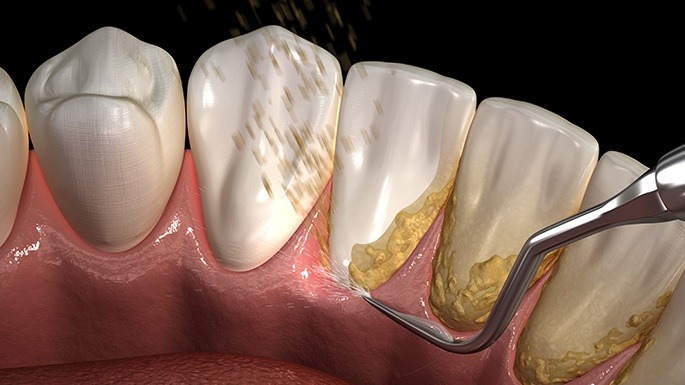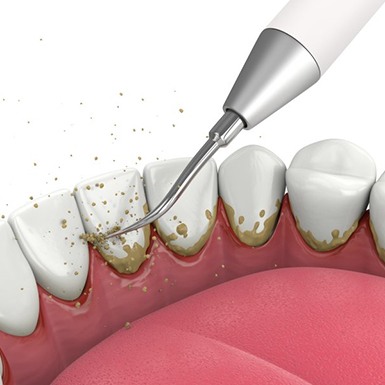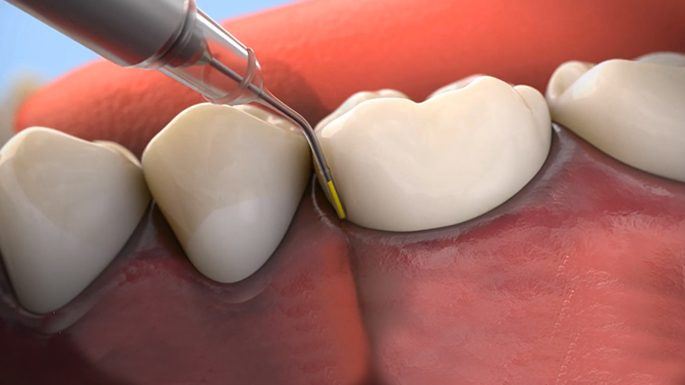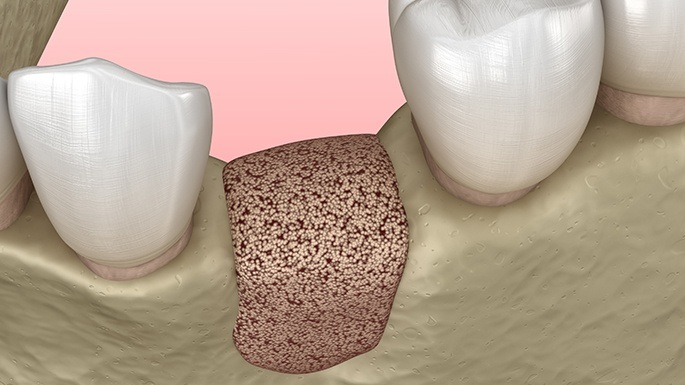Periodontal Disease Therapy – Philadelphia, PA
Keeping Your Whole
Smile Healthy
The early symptoms of gum disease are often very subtle – so subtle that many people don’t even realize that they’re suffering from the condition. Yet this often-silent disease could easily cost you your teeth and have a disastrous impact on your overall health if it goes unaddressed for too long. If you notice worrisome symptoms like bleeding, red, or sensitive gums, know that you can always call Dentex Dental of Philadelphia for reliable periodontal disease therapy in Philadelphia, PA.
Why Choose Dentex Dental of Philadelphia for Periodontal Disease Therapy?
- Fast & Pain-Free Laser Gum Therapy
- Caring Dental Experts
- State-of-the-Art Dental Office
Scaling & Root Planing

To stop the inflammation of the gum tissue and the surrounding bone, we’ll need to remove any bacteria that has built up around the gum line. A scaling procedure in Northeast Philadelphia involves the use of special instruments to remove plaque and tartar from the roots of your teeth. Once that’s done, root planing smooths out the roots so that the gums can heal and reattach more easily. With these two procedures, we can help prevent gum disease from progressing while maintaining your oral health.
Do I Need Scaling & Root Planing?

The majority of the time, our team will recommend root planing and scaling for advanced periodontal infection. Those who are struggling with symptoms like receding gums, bleeding, persistent bad breath (halitosis), difficulty chewing, shifting teeth, or obvious plaque buildup should notify our team right away for help. We’ll evaluate your current condition and determine the proper treatment(s) you’ll need to resolve the issue. Scaling and root planing will typically be recommended based on the severity of the infection.
The Process of Scaling & Root Planing

For patients with advanced gum disease, our team will first have to get rid of the bacteria responsible for the infection. This will typically consist of a series of scaling and root planing visits. The first stage of the treatment is scaling, which is designed to address and remove any calcified plaque (tartar) from above and below the gum line.
Afterward, we will perform root planing—a process of smoothening out the exposed tooth roots so that they’re bacteria-free. This portion of the treatment will also help encourage reattachment of the receding gum tissue to the teeth as well as prevent future accumulation of bacteria.
Aftercare Tips for Scaling & Root Planing

Once you’ve undergone your treatment, you’ll likely expect to experience some mild discomfort or tenderness in your smile. You also might feel some sensitivity in your teeth for a while, and your gums may have some slight bleeding or swelling in the area. Fortunately, these symptoms should be short-lived. You’ll want to prioritize infection control during your recovery so you can avoid future complications, which is why we’ll provide you with specific instructions for brushing and flossing your smile.
Our team might also recommend an antibiotic or designated mouthwash that will help during the healing period. Of course, take over-the-counter painkillers to alleviate discomfort. While recovering, make sure to avoid acidic, spicy, hot, and sharp foods that could disturb the surrounding tissues. After one to a couple of weeks, your gums should be completely healed and feel back to normal.
Arestin® Antibiotic Therapy

Even after scaling and root planing, bacteria can still easily become trapped in the pockets that form between the teeth and gums. A special antibiotic called Arestin can be placed in these spaces. It takes the form of several microspheres containing medication. As time goes on, more of the medication is released so that it can continue to eliminate bacteria and protect the area from infection.
Guided Bone Regeneration Surgery

Severe gum disease can cause the bone mass in your jaw to decrease. This type of damage can be reversed with guided bone regeneration surgery in Bustleton, also known as guided tissue regeneration. The process involves removing diseased tissue and bacteria before performing a bone graft procedure; simply put, we take healthy bone from elsewhere in your body and place it in the jaw to give it a chance to regenerate itself. Bone regeneration is often necessary if you want to use dental implants to replace your missing teeth.


 (215) 677-2401
(215) 677-2401